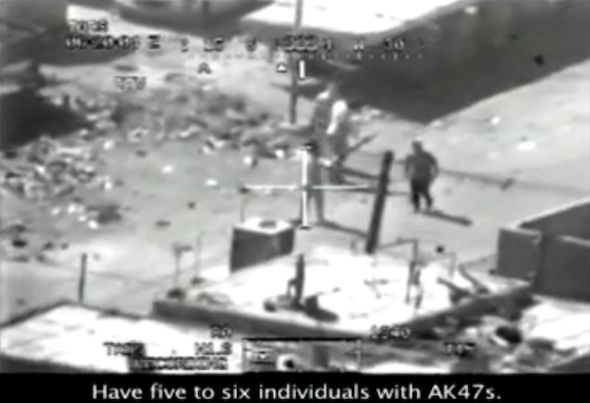Trident Cafe encounter vs. WikiLeaks video
Alexia Parks | Apr 7, 2010

It was 9:05 a.m. The meters outside the Trident Café had been active for five minutes. I had been standing beside the driver’s side door of my car — three dogs waiting inside — engaged in a last-minute conversation with a friend before driving away.
There were no cars parked near mine. However, a sixth sense told me to look over my shoulder, and as I did, I saw him there — the meter-man — not more than four feet from me, encoding the number of my license plate into his electronic machine.
“You have been standing here talking for five minutes. I saw you when I was across the street, heading this way,” he said without expression. He was right. With the silence of a stealth bomber, he had approached my car. Then, without a call of greeting or warning, the dirty deed was done.
“I don’t try and make decisions on my own, he explained. “I just write tickets for cars without a parking validation. I’ve been told that my job is to write tickets.”
Like the local dog-catcher, he had become adjusted to the idea of dispensing misery to people who were not his neighbors, while holding firm to the thought: “I’m just doing my job.” His eyes were clear and unclouded as he repeated the mantra once again: “It’s just my job.”
Later that day, I watched a classified U.S. military video released by WikiLeaks (see actual video) in which aerial shooters turned their machine guns on a dozen innocent civilians in Baghdad, two of whom were Reuters news staff.
The mantra of the soldiers who gunned them down from the air — then circled around to shoot a Good Samaritan who encountered the bloody scene a few minutes later — sounded familiar. They justified their murderous act as “just doing our job.”
Personal versus impersonal
However, there is no way to compare the two acts. The parking employee has to look each person who confronts him in the eye. His job is face-to-face. By contrast, the military’s aerial shooters, playing deadly video-like war games, never have to face their victims or their families.
They never get to hear the other side of the story or go through a reconciliation process. In the Rwandan Genocide, where hundreds of thousands of innocent people were killed over a 100-day period, the process of healing is taking place through reconciliation. The murderers must sit in a courtroom and listen to the victims’ families describe the horror of the event and the pain and trauma suffered by the surviving families.
In a similar fashion, for those U.S. soldiers exposed in the WikiLeaks-decoded video, who seem immune to the pain and suffering of others, it may be a good time to bring them forward. They could be brought to a courtroom — perhaps in Iraq — where they can listen to the stories of the families of their victims. Perhaps in this way, they can come to terms, at the deepest personal level, with the harm they have done.
Innocent Iraqi civilians are not fair game for burned out, thrill-seeking U.S. soldiers. These war-addicted soldiers, with a videogamer mindset, grasped at phrases like “collateral damage” and “armed terrorists” to explain what had happened when the “game” was over.
In a civilized world, “we were just doing our job” does not apply to murder.
WikiLeaks and Reuters should receive an award for their work in bringing this whistle-blower video into the public spotlight. And the public should demand that all such war-zone videos be placed in the public domain.
Only when we understand the underpinnings of violence done in the name of “national security,” or in the name of “just doing our job,” will we begin to find long-lasting solutions to humankind’s seemingly endless addiction to war and suffering.
Postscript


